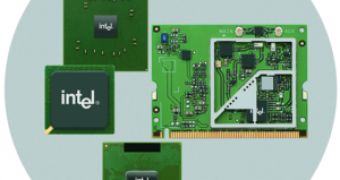A number of industry sources are claiming that Intel is planning to soon stop production of a number of older central processing units based on Centrino technology which are now used for mobile computing devices like laptops and notebooks. The processor lines affected by this decision will be the ones currently produced under the Napa and Napa Refresh designations.
A product discontinuance notice, PDN for short, is supposed to come out from the processor manufacturing company in January 2008 and, affected by it, will be offering currently found under the Napa Refresh platform, like the T7600, T7400, T7200, T5600 and T5500 central processing units, that will hit the end of life, EOL for short, stage in March 2008.
The PDN for the Napa mobile computing platform has already been issued and it includes processing units like the models T2700, T2600, T2500, T2400, T2300 and T2300E that will hit the end of life cycle stage in November this year. Apart from the mobile computing platforms, a number of desktop intended central processing units from Intel, like the entry level Celeron and Celeron M processors will also be terminated in January 2008, while hitting the EOL status in March.
The Celeron Ms affected by this measure are the 530 and the 520 models, unlike the M 450, 440 and 430 versions that are already PDN, while waiting for the EOL status in November. According to the news site digitimes, this move means the termination of ten notebook processing units that are based on the 65 nanometer fabrication process, while also letting Intel smooth its transition to the 45nm technology.
Apart from getting rid of its old processors and technologies, Intel also introduces something new, a new entry level design for mainboards that are based on SiS662 chipsets. This comes as no big surprise as Intel's entry-level D201GLY motherboard that is centered around the Silicon Integrated System made chipsets, is now very popular on many emerging markets and the manufacturing company decided that a new mainboard design that features a new processing unit and more connecting options is in order.
As SiS' own production limes are severely limited, the chipset manufacturer is most likely going to outsource more orders to United Microelectronics Corporation in order to keep up the pace with Intel's demand for chipsets as the fourth quarter of the year is always a busy time for the computer hardware manufacturers.

 14 DAY TRIAL //
14 DAY TRIAL //